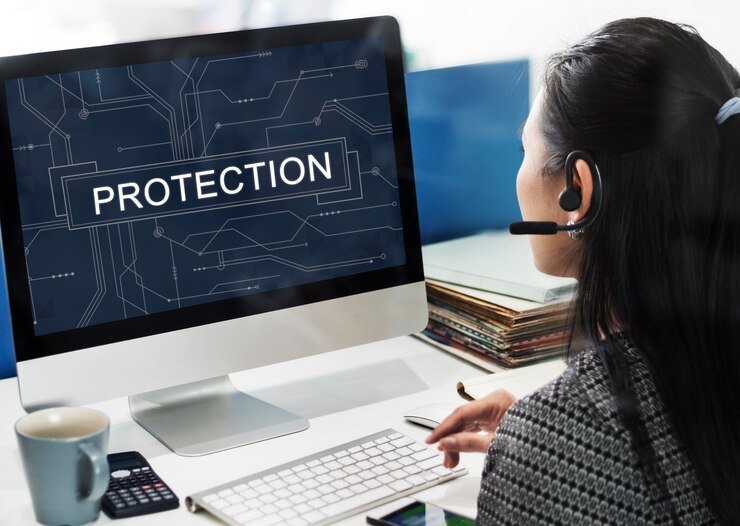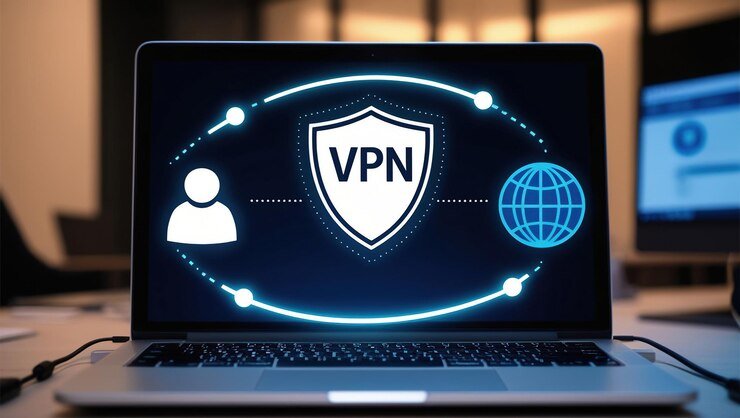
Introduction to IP Addresses
In today’s digital age, your online presence is more significant than ever. Every time you connect to the internet, a unique identifier called an IP address comes into play. But what exactly does that mean for your privacy? As we navigate through endless websites and social media platforms, understanding how to get someones IP addresses to work and their implications on our personal information has never been more crucial.
Curiosity about how to get someones IP often arises in various contexts—whether you’re looking to enhance security or simply understand the technology behind it all. The reality is that while IP addresses serve essential functions in connecting us online, they also pose risks when it comes to safeguarding our personal data. Let’s delve deeper into this fascinating world of numbers and uncover how we can protect ourselves while surfing the web!
What is an IP Address?
An IP address, or Internet Protocol address, is a unique string of numbers assigned to every device connected to the internet. Think of it as your device’s digital home address.
When you connect online, your IP serves two main functions: identification and location tracking. It helps websites know where to send data and ensures the right information reaches the correct user.
IP addresses can be static or dynamic. Static ones remain constant over time, while dynamic addresses change periodically. This variability can affect how devices are recognized on networks.
Understanding an IP address is crucial for navigating the internet securely and privately. It plays a key role in ensuring that your online activities are routed correctly but also brings implications for privacy that many users often overlook.
The Importance of IP Addresses in Online Privacy
IP addresses serve as the digital fingerprints of our online activities. Each time you browse, stream, or interact on the web, your IP address is there, silently tracking your movements.
This unique identifier can expose a lot about you. It reveals your geographical location and internet service provider. Cybercriminals often exploit this information to target individuals with malicious intent.
In an age where data breaches are common, protecting your IP address is essential for maintaining privacy. Without safeguards in place, hackers can easily trace back to you.
Moreover, advertisers utilize IP addresses to build detailed profiles based on browsing habits. This targeted marketing raises ethical concerns regarding consent and personal boundaries.
Understanding the importance of safeguarding your IP address helps you reclaim control over your online presence while navigating potential threats lurking behind every click.
Types of IP Addresses
IP addresses come in various types, each serving different purposes. The most common are IPv4 and IPv6.
IPv4 is the older format, featuring a 32-bit address scheme that allows for about 4 billion unique combinations. However, with the explosive growth of internet users and devices, these addresses have become scarce.
IPv6 was introduced to solve this problem. It employs a 128-bit addressing system, providing an almost unimaginable number of IP addresses—around 340 undecillion options! This ensures ample availability for future internet expansion.
Static IP addresses remain constant over time. They’re typically assigned to servers or important equipment needing stable connections.
Dynamic IP addresses change periodically and are assigned by your Internet Service Provider (ISP). Most home users receive dynamic IPs which can enhance security by making it harder to track them consistently.
Understanding these types helps you navigate online activities more effectively.
How to Hide Your IP Address
Hiding your IP address is essential for maintaining online privacy. One effective method is using a Virtual Private Network (VPN). A VPN encrypts your internet traffic and masks your real IP address, making it appear as if you’re browsing from another location.
Another option is to use a proxy server. This acts as an intermediary between you and the websites you visit. While proxies can offer some level of anonymity, they may not provide the same security features as a VPN.
Tor Browser is another powerful tool for those serious about privacy. It routes your connection through multiple servers, obscuring your original IP address significantly.
Public Wi-Fi networks allow temporary anonymity but come with their own risks. Always consider using additional protection like HTTPS sites when connecting in these environments to enhance safety further.
Risks of Not Protecting Your IP Address
Leaving your IP address unprotected can open the door to various risks. It exposes you to malicious attacks, such as DDoS (Distributed Denial of Service) attacks, which can overwhelm your network and cause significant downtime.
Hackers may exploit an unsecured IP address to gain unauthorized access to your devices. Once inside, they could steal sensitive information or plant malware that compromises your system’s integrity.
Moreover, without protection, advertisers can track your online behavior more easily. This data profiling leads to targeted ads that feel invasive and intrusive.
There’s also a risk of being doxxed—having personal information leaked publicly—if someone discovers how to get someones IP address through questionable means. Such privacy invasions may result in harassment or worse.
Staying unaware of these threats might seem harmless initially; however, it can lead to severe consequences down the line if proactive measures are not taken.
Tools and Methods for Protecting Your IP Address
Protecting your IP address is essential in today’s digital landscape. Fortunately, several effective tools and methods can help you achieve this.
First on the list are Virtual Private Networks (VPNs). A VPN encrypts your internet connection, masking your real IP address with one from its servers. This not only enhances privacy but also allows access to geo-restricted content.
Proxies serve a similar purpose by acting as intermediaries between you and the internet. They reroute requests through their own server, hiding your original IP address effectively.
For those who prefer browser-based solutions, privacy-focused browsers like Tor offer anonymity by routing traffic through multiple nodes. This method makes it extremely difficult for anyone to trace back to your actual location.
Utilizing firewall software adds an additional layer of security by monitoring incoming and outgoing traffic, further safeguarding against unwanted exposure of your personal information.
How IP Addresses Can Reveal Personal Information
IP addresses are like digital fingerprints, tracing back to your online activities. When you connect to the internet, your device is assigned a unique IP address.
This number can reveal various details about you. For instance, it often discloses your geographical location. Websites and services use this information to tailor content based on where users are accessing from.
Moreover, ISPs (Internet Service Providers) keep logs of user activity linked to specific IPs. This means that anyone with access—be it law enforcement or hackers—can potentially track what you’ve been doing online.
Even everyday websites might collect data tied to your IP address for targeted advertising purposes. So each time you browse, part of your identity follows you around in the form of bits and bytes.
Understanding how much personal information an IP address can unveil is crucial in safeguarding one’s privacy on the web.
Protecting Your Privacy Online
Protecting your privacy online is more crucial than ever. With increasing cyber threats, you must take proactive steps to safeguard your personal information.
Start by using strong, unique passwords for each account. Password managers can help keep track of them easily. Two-factor authentication adds an extra layer of security that’s hard for hackers to bypass.
Be mindful of the data you share on social media platforms. Limit what others can see and regularly review your privacy settings. Remember, once something is posted online, it may be there forever.
Also consider using a Virtual Private Network (VPN). A VPN encrypts your internet connection, making it much harder for anyone to spy on your activities or steal sensitive data while you’re online.
Always stay informed about the latest privacy practices and potential threats in the digital world. The more educated you are about these issues, the better equipped you’ll be to protect yourself effectively.
Common Misconceptions About IP Addresses and Privacy
Many people believe that an IP address is akin to a precise location, similar to your home address. While it can indicate your general area, it doesn’t pinpoint exactly where you live.
Another common misconception is that using a VPN guarantees complete anonymity. While a VPN encrypts your data and masks your IP, it’s not foolproof. Certain actions online can still expose personal information.
Some think their ISP can’t track their activity if they use anonymous browsing tools. However, ISPs have access to metadata and connection logs, which might reveal patterns of behavior even without direct content tracking.
There’s the belief that IPv6 addresses are inherently safer than IPv4 addresses. The truth is both types can be vulnerable; security ultimately depends on how users manage their privacy settings and choose protective measures.
Conclusion
Understanding the nuances of IP addresses is essential in today’s digital landscape. As we navigate the internet, our IP address serves as a unique identifier, revealing more about us than many realize. While it facilitates communication and connection online, it also poses risks to our privacy.
The importance of protecting your IP address cannot be overstated. With various tools and methods available, such as VPNs and proxies, safeguarding your personal information becomes feasible. By taking proactive measures to hide or mask your how to get someones IP address, you can significantly enhance your online security.
It’s crucial to dispel common misconceptions surrounding how to get someones IP addresses and privacy. Many believe that their activities are entirely anonymous; however, this isn’t always the case. Understanding how much information an how to get someones IP address can disclose empowers users to take control of their digital footprint.
As technology evolves, so do the strategies for maintaining privacy online. Staying informed about these changes will help individuals make better decisions regarding their internet usage and protect themselves from potential threats associated with exposed how to get someones IP addresses.
Remember that while navigating online spaces comes with conveniences, it also requires vigilance in managing one’s privacy effectively.
RELATED POSTS
View all


